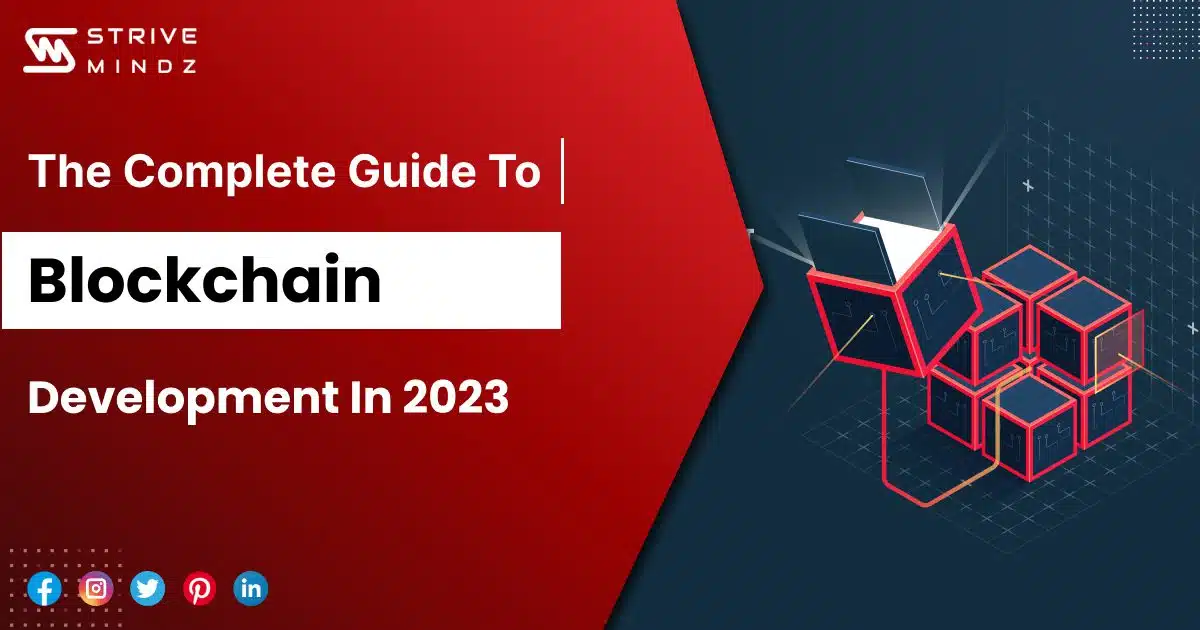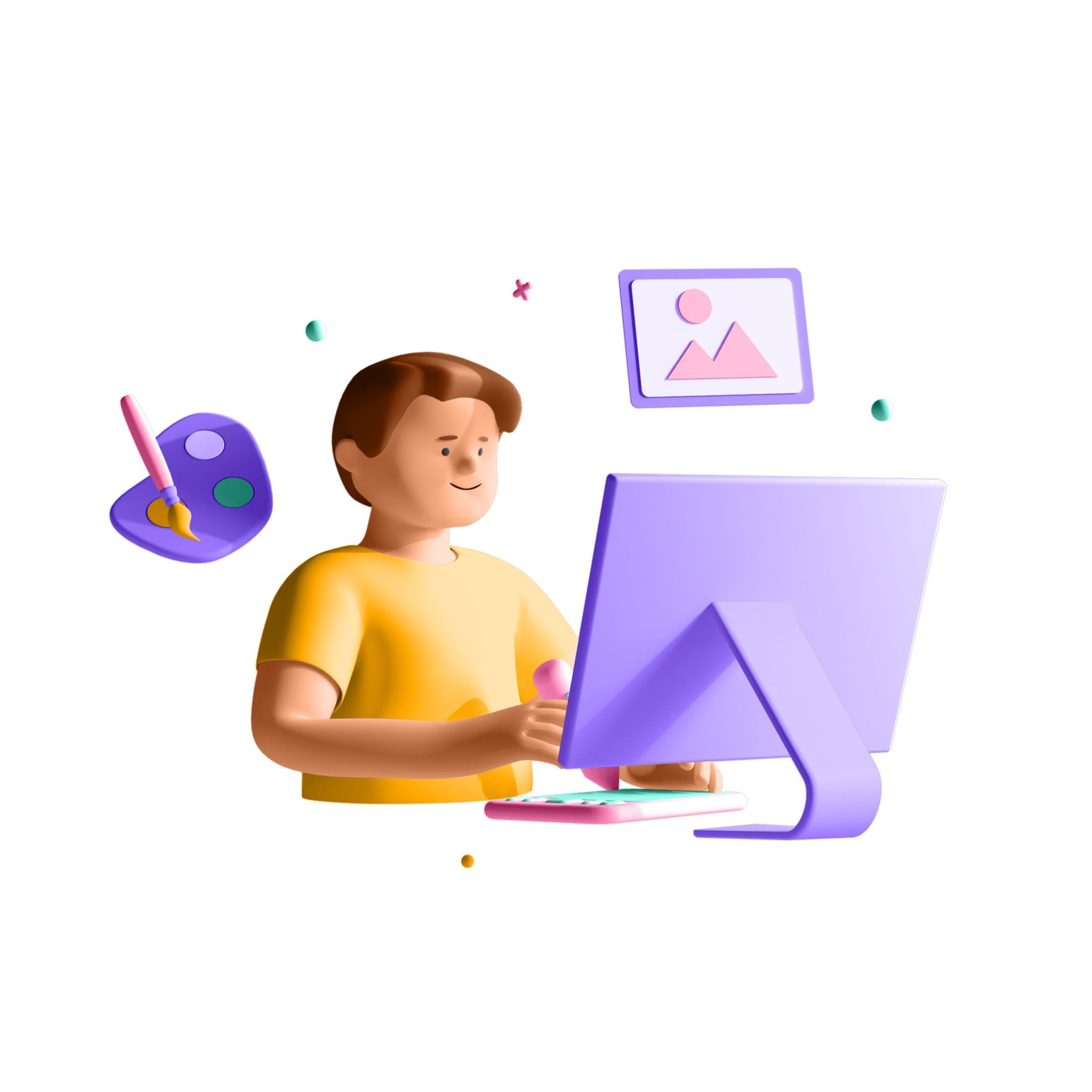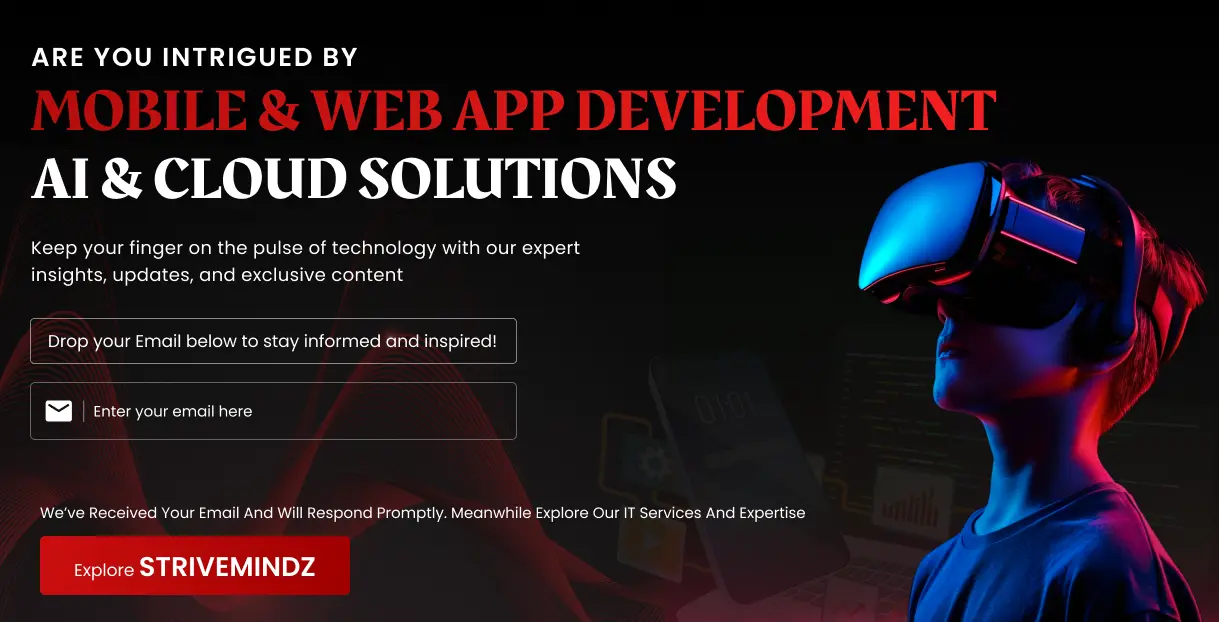The Complete Guide to Blockchain Development in 2023

Blockchain technology is disrupting industries and revolutionizing the way we conduct transactions. As the demand for blockchain development solutions grows, it’s important to have a comprehensive understanding of its development. This guide covers all aspects of blockchain development, from its underlying principles to practical application. You’ll learn about blockchain architecture, smart contracts, decentralized apps, and the different programming languages used in development. Whether you’re a seasoned developer or just starting out, this guide provides a solid foundation for building blockchain solutions that are secure, transparent, and efficient. Get started on your blockchain journey today and learn how to harness its full potential.
What Is Blockchain?
Blockchain is a decentralized digital ledger that records transactions across a network of computers. It uses cryptography to secure and verify transactions, making it resistant to modification and hacking. The information stored on a blockchain is transparent, public and can only be added, not deleted or altered. This makes it a secure and reliable way of recording and storing data, leading to its use in a variety of applications such as cryptocurrency, supply chain management, and digital identity management.
The three parts of the digital information contained in each block on a blockchain are:
- Transactions: The details of the exchange or transfer of assets or data.
- Hash: A unique identifier or digital fingerprint of the block that links it to the previous block in the chain.
- Timestamp: The date and time the block was added to the blockchain.
These three parts work together to provide the secure and transparent record-keeping that makes blockchain technology so valuable. By linking blocks together in a chain, blockchain creates a tamper-resistant and verifiable ledger of transactions that is maintained by a decentralized network of nodes.
What are the advantages of using blockchain technology?
The advantages of using blockchain technology include:
- Security: Blockchain uses cryptography to secure and verify transactions, making it resistant to hacking and modification.
- Decentralization: The use of a distributed network of nodes eliminates the need for a central authority to verify transactions, leading to a more democratic and secure system.
- Transparency: Blockchain provides a public and transparent ledger of transactions, making it easier to detect and prevent fraud and corruption.
- Immutability: Transactions recorded on the blockchain cannot be altered, providing an unalterable record of all transactions.
- Efficiency: By eliminating intermediaries, blockchain technology can reduce transaction times and costs, improving efficiency.
- Interoperability: The ability to exchange information and assets across different networks and platforms enables greater collaboration and innovation.
- Cost-effectiveness: The use of blockchain technology can reduce the need for intermediaries and manual processes, leading to lower costs and increased cost-effectiveness.
- Traceability: Blockchain’s decentralized ledger allows for the tracking and tracing of assets, making it useful for supply chain management and other applications.
These benefits make blockchain an attractive solution for a wide range of industries and applications, such as financial services, supply chain management, digital identity management, and more.
What Is a Blockchain Developer?
A Blockchain Developer is a software engineer who specializes in developing decentralized applications and solutions using blockchain technology. They are responsible for designing, building, and maintaining the infrastructure of blockchain-based systems. This includes tasks such as writing smart contracts, creating decentralized applications (dApps), and developing consensus algorithms. Blockchain Developers need to have a strong understanding of blockchain architecture, cryptography, and distributed systems, as well as proficiency in programming languages such as Solidity, Java, Python, and C++. In addition, they should have knowledge of various blockchain platforms such as Ethereum, Hyperledger, and EOS. The role of a Blockchain Developer is critical to the success of blockchain projects, as they play a key role in ensuring the security, scalability, and interoperability of blockchain systems.
1. Core Blockchain Developers
Core Blockchain Developers are software engineers who specialize in the development and maintenance of the underlying infrastructure of blockchain technology. They are responsible for building and implementing the consensus algorithms, cryptographic protocols, and distributed systems that form the backbone of blockchain networks. They work on the core components of blockchain technology, such as distributed ledger systems, peer-to-peer networks, and consensus algorithms, to ensure the stability, security, and scalability of the network.
Core Blockchain Developers need to have a deep understanding of mathematics, computer science, and cryptography, as well as a good understanding of distributed systems and network protocols. They should be proficient in programming languages such as C++, Go, and Rust and should have experience working with blockchain platforms such as Bitcoin, Ethereum, and Hyperledger. The role of a Core Blockchain Developer is essential to the success of blockchain projects, as they are responsible for creating the infrastructure that will support the applications built on top of it.
2. Blockchain Software Developers
Blockchain Software Developers are software engineers who specialize in the development of decentralized applications and solutions using blockchain technology. They are responsible for designing, building, and deploying applications that use blockchain to store, manage, and transfer data and assets securely and transparently. They write smart contracts, which are self-executing agreements that enforce the terms of a contract on the blockchain, and develop decentralized apps (dApps) that run on blockchain networks.
Blockchain Software Developers should have a good understanding of blockchain architecture, cryptography, and distributed systems, as well as proficiency in programming languages such as Solidity, Java, Python, and JavaScript. They should also have knowledge of various blockchain platforms such as Ethereum, Hyperledger, and EOS, as well as experience working with API development and integration. The role of a Blockchain Software Developer is critical to the success of blockchain projects, as they are responsible for building the applications that run on top of the blockchain infrastructure and bring its benefits to end-users.
Blockchain Developers: Reasons to Hire Them
There are several reasons why organizations choose to hire a blockchain developer:
- Technical Expertise: Blockchain developers have specialized knowledge of blockchain technology and the skills to build decentralized applications and solutions.
- Innovation: Hiring a blockchain developer enables organizations to take advantage of the latest advancements in blockchain technology and stay ahead of the competition.
- Increased Security: Blockchain developers can build secure solutions that protect sensitive information and assets using cryptography and other security measures.
- Reduced Costs: By eliminating intermediaries and manual processes, blockchain solutions can reduce costs and improve efficiency.
- Improved Traceability: Blockchain developers can build solutions that provide transparency and traceability of assets and information, making it easier to detect and prevent fraud and corruption.
- Faster Time-to-Market: Blockchain developers can help organizations bring new products and services to market faster by leveraging the efficiency and interoperability of blockchain technology.
- Competitive Advantage: By using blockchain technology, organizations can gain a competitive advantage in their industry by providing secure, efficient, and transparent solutions.
In conclusion, hiring a blockchain developer is a strategic investment that can help organizations stay ahead of the competition, reduce costs, and improve security and efficiency.
Blockchain developers: How to hire them
Here are some steps to help you hire a blockchain developer:
- Define your project requirements: Start by defining the scope of your project, including the goals, objectives, and desired outcomes. This will help you determine the skills and expertise that you need in a blockchain developer.
- Evaluate technical skills: Look for a blockchain developer who has a strong background in computer science, mathematics, and cryptography. Additionally, evaluate their experience with programming languages such as Solidity, Python, and C++.
- Check for industry experience: Look for a blockchain developer who has experience in your industry and understands the specific requirements and challenges that you face.
- Ask for references and portfolio: Ask for references from past clients and review the developer’s portfolio to see their past work and get a sense of their capabilities.
- Assess communication skills: Good communication skills are essential for a successful collaboration. Look for a blockchain developer who can communicate effectively and is able to work effectively with your team.
- Determine the right fit: Hiring a blockchain developer is not just about technical skills, but also about the right cultural fit. Look for a blockchain developer who shares your values and has a similar work ethic.
- Consider cost and budget: Consider the cost and budget for hiring a blockchain developer, and look for a developer who offers value for money.
By following these steps, you can find the right blockchain developer for your project and ensure a successful collaboration.
What should you look for in a Blockchain developer?
When hiring a blockchain developer, it is important to look for the following skills and qualities:
- Technical skills: A strong background in computer science, mathematics, and cryptography is essential for a blockchain developer. Look for a developer who is proficient in programming languages such as Solidity, Python, and C++.
- Industry experience: Look for a developer who has experience in your industry and understands the specific requirements and challenges that you face.
- Strong portfolio: A strong portfolio showcases a developer’s past work and gives you a sense of their capabilities. Look for a developer who has a portfolio that demonstrates their expertise in blockchain development.
- Communication skills: Good communication skills are essential for a successful collaboration. Look for a developer who can communicate effectively and is able to work effectively with your team.
- Problem-solving skills: A blockchain developer must be able to identify and solve complex problems. Look for a developer who has a strong problem-solving skills and a track record of delivering solutions that meet client needs.
- Adaptability: Blockchain technology is constantly evolving, and it is important to find a developer who is adaptable and willing to learn and adopt new technologies as they emerge.
- Collaboration skills: A blockchain developer must be able to work effectively with your team and other stakeholders. Look for a developer who is a team player and has strong collaboration skills.
By looking for these skills and qualities, you can find a blockchain developer who is capable of delivering high-quality solutions and is a good fit for your team and organization.
How Much do Blockchain Developers Cost in the U.S.?
The cost of hiring a developer in the U.S. varies based on several factors such as the location, skill level, and experience of the developer. On average, a mid-level software developer in the U.S. can earn anywhere from $80,000 to $120,000 per year. A senior-level software developer can earn upwards of $150,000 per year or more.
When it comes to hiring a freelancer, the cost can range from $50 to $200 or more per hour. The exact cost will depend on the developer’s skills, experience, and location, as well as the scope and complexity of the project.
It is important to note that the cost of hiring a developer is just one of many factors to consider when building a software solution. It is also important to consider the quality of the code, the speed of delivery, and the overall cost of the project when making a decision.
How much do Blockchain Developers Cost in the UK?
The cost of hiring a developer in the UK can vary based on several factors such as location, skill level, and experience. On average, a mid-level software developer in the UK can earn anywhere from £45,000 to £70,000 per year. A senior-level software developer can earn upwards of £80,000 per year or more.
When it comes to hiring a freelancer, the cost can range from £30 to £150 or more per hour. The exact cost will depend on the developer’s skills, experience, and location, as well as the scope and complexity of the project.
It is important to note that the cost of hiring a developer is just one of many factors to consider when building a software solution. It is also important to consider the quality of the code, the speed of delivery, and the overall cost of the project when making a decision.
How Much do Blockchain Developers Cost in India?
The cost of hiring a blockchain developer in India varies based on several factors such as location, skill level, and experience. On average, a mid-level blockchain developer in India can earn anywhere from INR 800,000 to INR 1,200,000 per year. A senior-level blockchain developer can earn upwards of INR 1,500,000 per year or more.
When it comes to hiring a freelancer, the cost can range from INR 500 to INR 5,000 or more per hour. The exact cost will depend on the developer’s skills, experience, and location, as well as the scope and complexity of the project.
It is important to note that the cost of hiring a developer is just one of many factors to consider when building a blockchain solution. It is also important to consider the quality of the code, the speed of delivery, and the overall cost of the project when making a decision.
Why Hire a Blockchain Developer?
There are several reasons why businesses and organizations might choose to hire a blockchain developer:
- Expertise: Blockchain is a complex and rapidly evolving technology, and having a developer with specialized knowledge can be critical to the success of a project.
- Speed: Hiring a dedicated blockchain developer can help speed up the development process, allowing projects to be completed more quickly and efficiently.
- Cost-effectiveness: By hiring a dedicated blockchain developer, organizations can avoid the overhead costs associated with in-house development, such as salaries, benefits, and office space.
- Flexibility: Hiring a blockchain developer on a project basis gives organizations the flexibility to scale up or down their development efforts as needed, without the commitment of a full-time employee.
- Security: A skilled blockchain developer can help ensure that applications and systems built on the technology are secure and tamper-proof.
Overall, hiring a blockchain developer can help organizations achieve their goals and stay ahead of the competition in an ever-changing technological landscape.
How Blockchain Development Solutions Can Benefit Businesses in 2023
The implementation of blockchain technology can bring a number of benefits to organizations, including:
- Increased security: Blockchain uses cryptography to secure transactions, making it a highly secure platform for recording and storing data.
- Transparency: Transactions on the blockchain are transparent and can be viewed by all participants in the network, creating accountability and reducing the risk of fraud.
- Decentralization: Blockchain technology is decentralized, meaning that there is no single authority or central point of control. This reduces the risk of single points of failure and enhances the reliability of the system.
- Immutability: Once data is recorded on the blockchain, it cannot be altered or deleted, providing a permanent and unalterable record of all transactions.
- Efficiency: Blockchain technology has the potential to significantly reduce transaction processing times and administrative costs by eliminating intermediaries and streamlining processes.
- Traceability: The ability to track transactions on the blockchain creates greater visibility and accountability, allowing organizations to monitor their supply chains and other critical processes.
- Increased trust: By eliminating intermediaries, blockchain technology can increase trust among parties who do not necessarily trust one another. This is particularly useful in industries such as finance, where trust is a critical factor.
Overall, the implementation of blockchain development solutions can bring a range of benefits to organizations, helping to increase security, transparency, and efficiency, while also reducing costs and enhancing trust.





